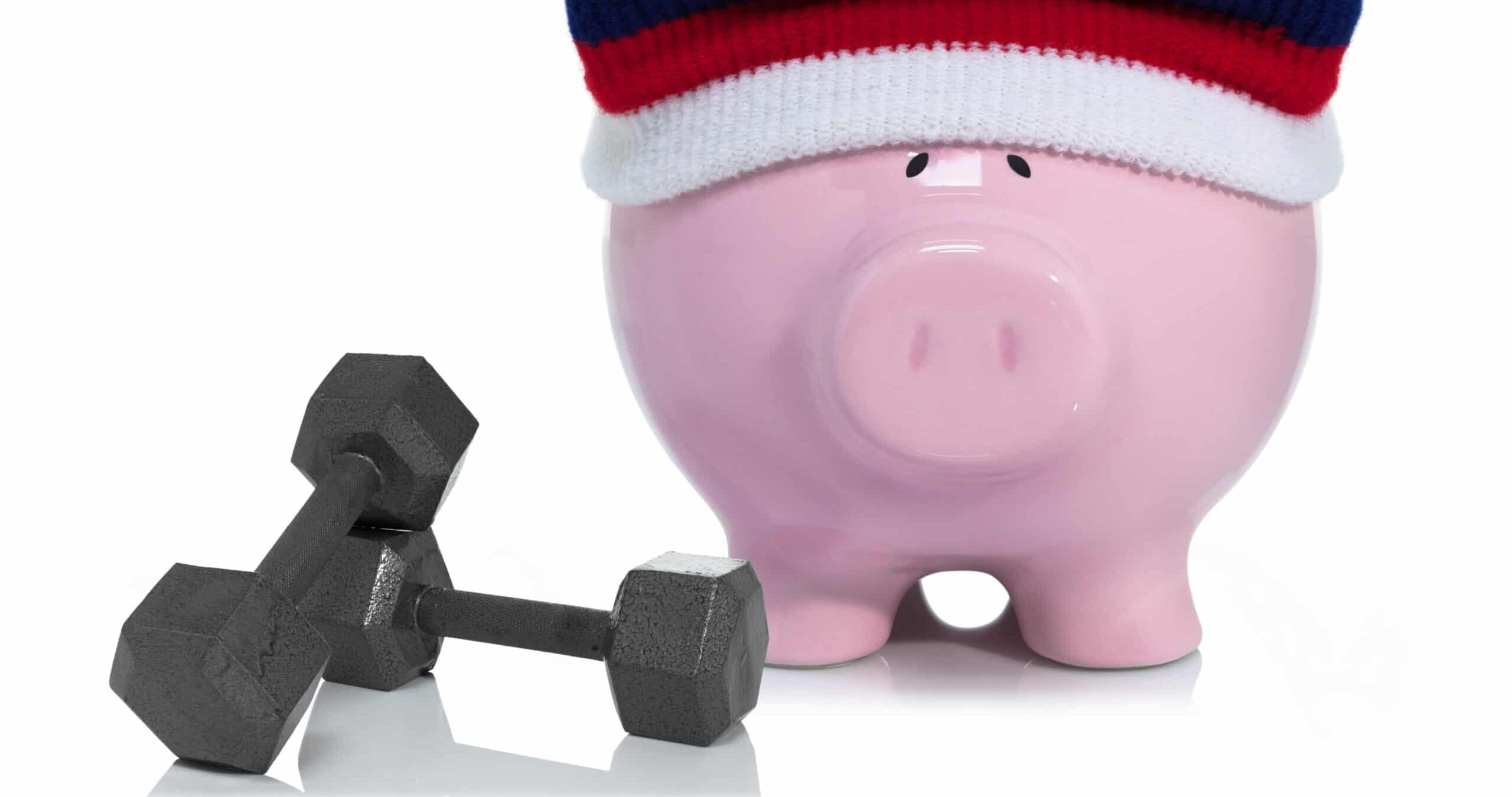With the cost of living spiralling faster than a downhill bobsled, most of us are feeling the squeeze in our wallets.
Rising energy bills, skyrocketing food prices, and the general cost of getting through the day are enough to give anyone heartburn—and that’s before even considering what it takes to stay fit and healthy.
But don’t throw in the towel just yet; staying healthy doesn’t have to cost a fortune. With some smart planning and a dash of creativity, you can eat well and keep fit without turning your bank account into a barren wasteland.

According to research from Alive!—the evidence-backed supplement brand for all stages of life—less than a third (28.9%) of UK adults manage to get in at least 30 minutes of exercise five days a week.
And get this: a staggering 15.8% admit they never exercise for 30 minutes in any week! Sure, it’s a bit bleak, but there’s good news buried in there like a diamond in the rough.
Staying fit on a budget is not only possible, but it can also be surprisingly fun. Let’s dive into some top tips from Suzie Sawyer, clinical nutritionist and the brain behind Alive! multivitamins, to help you navigate the path to fitness without breaking the bank.
1. Take Advantage of the Great Outdoors
Who says exercise needs a gym membership or fancy equipment? Sometimes, the simplest activities can have the most significant benefits.
Walking, for instance, is a fantastic way to boost your stamina, burn calories, and give your heart a good workout.
You don’t need to march for hours; a brisk 10-minute walk each day is all it takes to make a difference. Plus, it counts towards your recommended 150 minutes of weekly exercise.
It’s like getting a workout and some sunshine—nature’s best source of vitamin D—all rolled into one.
Now, speaking of vitamin D, it’s a big deal. This powerhouse nutrient is essential for immunity, strong bones, muscles, and even mood enhancement.
Unfortunately, it’s also one of the most common deficiencies these days. Public Health England suggests everyone should take a 10 mcg supplement daily since most of us aren’t getting enough from diet alone. Alive! Vitamin D3 Gummies or Nature’s Way High Strength Vitamin D3 Chewable Tablets are cost-effective options to keep your levels up, especially when the sun’s playing hide and seek.
2. Tackle Metabolic Syndrome with Regular Exercise
You probably already know that exercise burns calories, but it does so much more than that. It’s a powerful tool in managing metabolic syndrome—a cluster of conditions like heart disease, type 2 diabetes, obesity, and high blood pressure.
At the root of it all is often high blood sugar and insulin resistance, usually due to being overweight. Talk about a vicious cycle!
Research shows that aerobic exercises such as brisk walking, running, or cycling can help regulate these risk factors.
And here’s a tip: exercising 30 minutes after a meal helps control blood sugar spikes, reducing the chances of fat storage. Even low-intensity activities can boost your metabolic health.
For those who prefer a bit more action, running is a fantastic way to stay fit on the cheap. Forget pricey home gym equipment; just lace up your trainers and hit the road.
Run around your neighbourhood, along local trails, or even on vacation. Not sure how to start? Look up a ‘Couch to 5K’ program or find a friendly local running group. There are plenty out there eager to welcome newbies, no matter your fitness level.
3. Go Flexitarian for Health and Savings
A flexitarian approach—switching between plant-based and animal-based meals—is catching on, and for good reason.
It’s healthier for you and better for the planet. But let’s face it, meat, poultry, and fish can be expensive, and for those on a budget, it can add up quickly.
Enter the underdogs of the protein world: lentils, chickpeas, and beans. They’re cheap, especially when bought dry and soaked before cooking and loaded with antioxidants that help keep the ageing process at bay.
Start small by having one meat-free day each week. This can bring a range of benefits, from keeping cholesterol and blood pressure in check to reducing the risk of type 2 diabetes and boosting digestive health.
When you do eat meat, go for cheaper cuts like pork shoulder, beef shin, or lamb neck. And here’s the kicker: these cuts often end up being the tastiest, most tender pieces when cooked right. Slow cooking is your friend here.
For a foolproof recipe to get you started, try this easy pulled pork that’ll have your family drooling: Pulled Pork Recipe.
4. Maximise Your Meals
With food prices climbing higher than a cat up a tree, it’s essential to get the most nutrition for your money.
Whole grains like brown rice, whole wheat pasta, and whole grain bread aren’t just filler; they’re packed with B vitamins and fibre, helping you stay full longer.
When your meals are more nutrient-dense, you’ll need less to feel satisfied, saving both money and waistline inches.
Need a delicious, budget-friendly meal idea? Try a hearty pasta dish with a smoky tomato and paprika sauce. It’s a crowd-pleaser that won’t dent your wallet: Super Smoky Bacon & Tomato Spaghetti.
And don’t underestimate the humble jacket potato. Swap out the usual white spud for a baked sweet potato topped with tinned tuna.
Sweet potatoes are full of beta-carotene, which the body converts to vitamin A, a nutrient essential for immune function. Plus, they’re excellent at stabilizing blood sugar, keeping you fuller longer.
5. Fill in the Nutritional Gaps
Eating well is always the goal, but sometimes it’s hard to hit all the nutritional marks, especially on a budget.
With around 45 essential nutrients needed daily, getting everything from food alone can be tricky.
Those following a vegetarian or vegan diet need to be extra vigilant about certain nutrients like B vitamins, vitamin D, omega-3s, zinc, and iron.
And let’s not forget the nutrient drain that stress—like worrying about bills—can cause. Vitamins C, B5, and magnesium often take the hit.
That’s where a solid multivitamin comes into play. Alive! Multivitamin and Mineral Once Daily Tablets provide a tailored blend for men, women, children, and those over 50, covering all your bases for just £1.86 a week.
They’re vegetarian-friendly and packed with 26 fruits and vegetables, making them a cost-effective insurance policy for your health.
Conclusion
Staying fit and healthy on a budget doesn’t have to be complicated. With a bit of outdoor time, clever cooking, and mindful eating, you can keep your body in top shape without spending a fortune.
So, get out there, move more, eat smarter, and give your body the care it deserves—without taking a hammer to your bank balance.





